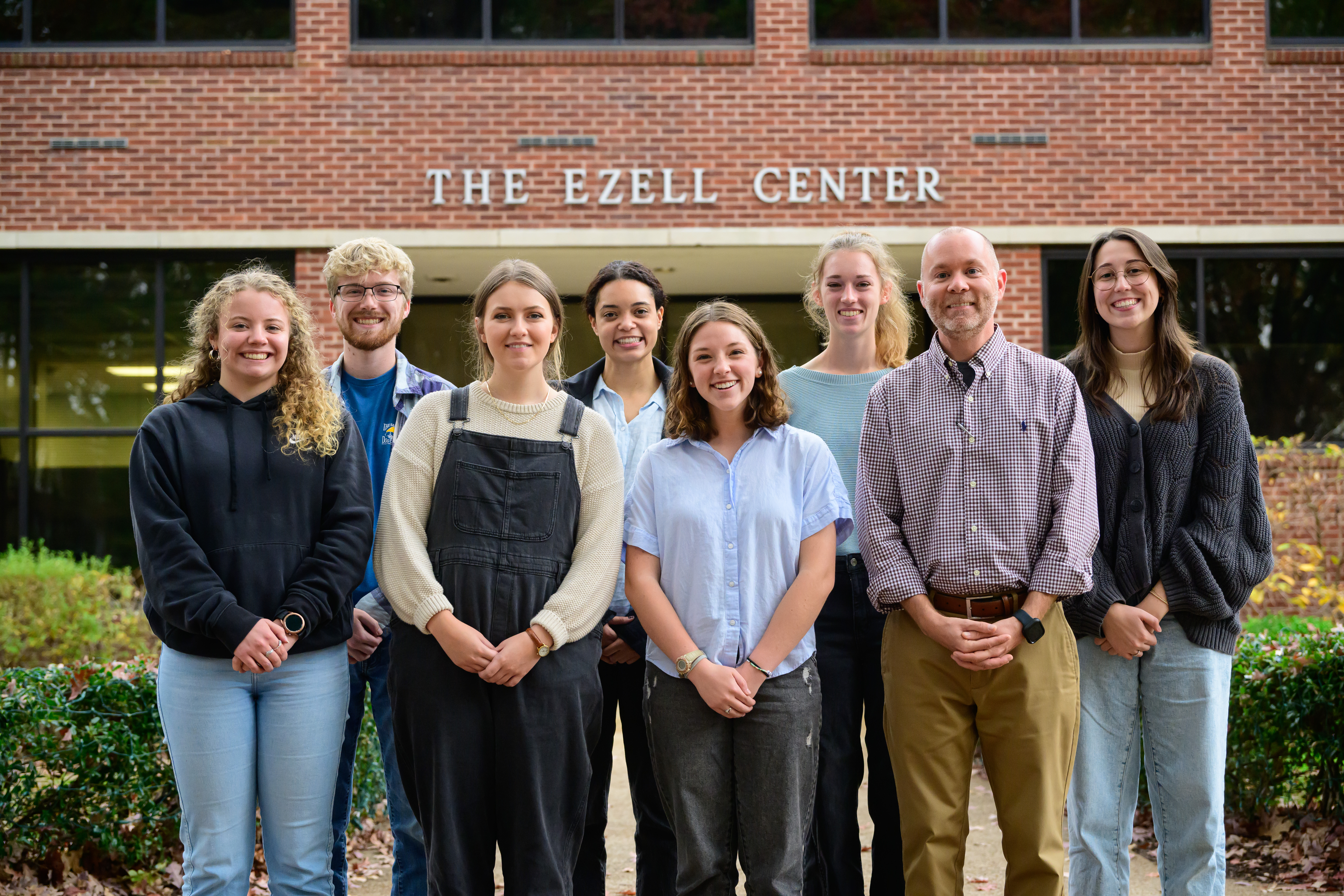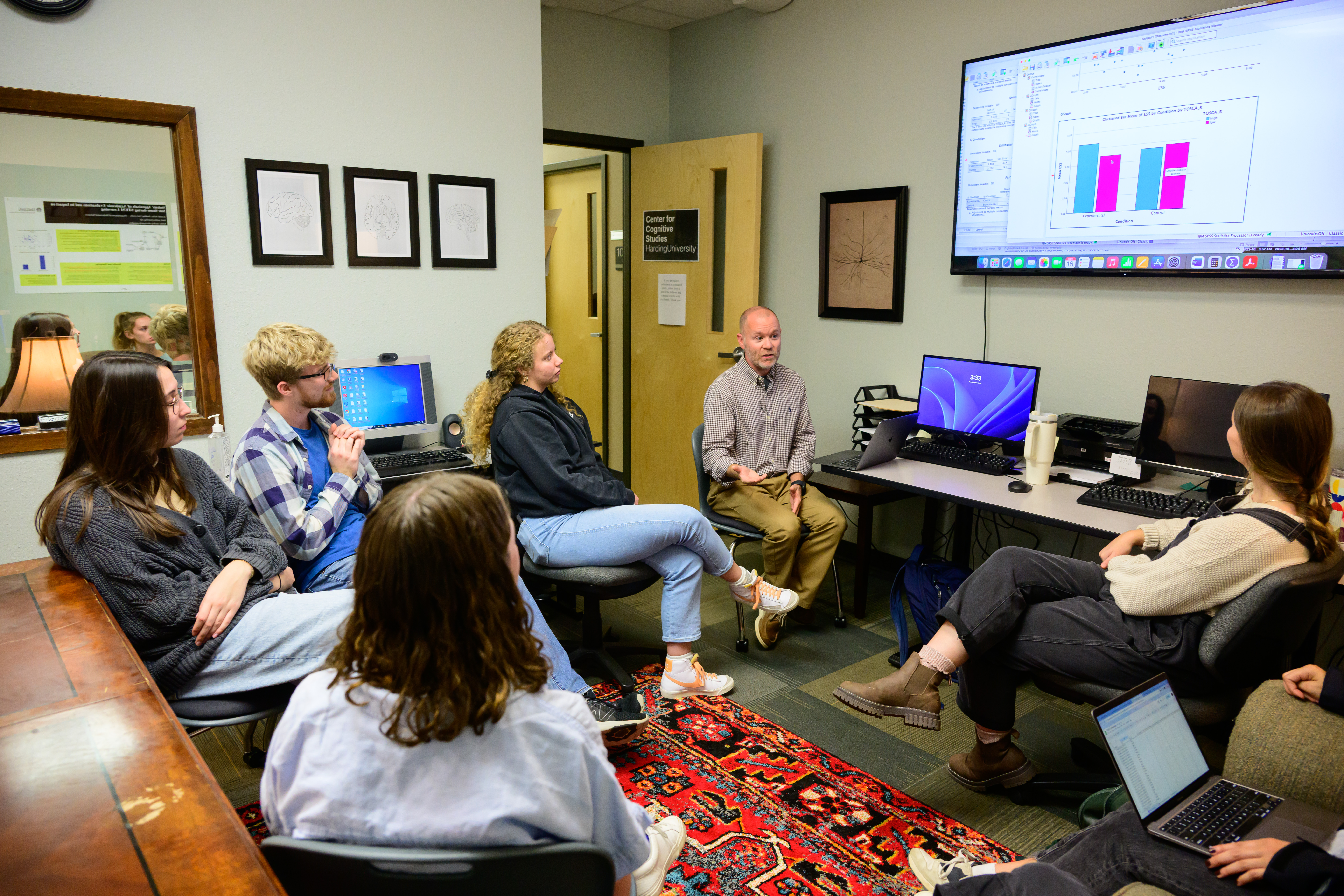
In the Center for Cognitive Studies, students work alongside faculty mentors to conduct high quality hands-on research. Dr. Jeremiah Sullins and his students have spent the last eight years exploring the effects of shame on learning, considering how specific strategies can help students become more resilient to shame and how to use experiences of shame constructively.
“As an undergraduate researcher, I had limited interactions with the professors in charge of the labs,” Sullins said. “However, at Harding students involved in psychological research can work alongside faculty and take on responsibilities not normally seen in undergraduate research assistants at other institutions. I enjoy working closely with students and supporting them through each step of the process.”
Dr. Jeremiah Sullins
Principal investigator and lab director
Current students working in the lab:
Julianna Beehn — junior cognitive neuroscience major
Morgan Kirby — senior psychology major
Kenzie Blaine — junior psychology and bible and ministry major
Avery Nicks — junior psychology major
Bethany Chandler — senior psychology major
Kiera Blankenship — junior psychology major
Gabe Jones — junior cognitive neuroscience major
Goal of the lab: Research conducted in the Center for Cognitive Studies addresses questions regarding cognitive processes involved in emotions, self-regulated learning, language and knowledge acquisition. The primary goals of the lab are to further our understanding of cognitive processes and to use this theoretical foundation to improve educational methods.
Philosophy: A prevalent misconception that continues to exist is that there cannot be an integration of religion and science. One unique aspect of gaining research experience at Harding is learning to approach science from a Christian worldview, making the job even more complex by following not only the ethical guidelines outlined by the American Psychological Association but also treating all participants for what they are (i.e., made in the image of God; Genesis 1:27). This philosophy guides study design, subject recruitment, obtaining informed consent and the data collection process.

Results: Recent results underscore the influence of shame-proneness on students’ self-regulation, perceptions of academic failure, experiences of “in the moment” shame and ultimately their ability to learn. Future projects are on the horizon with an eye toward the development, implementation and evaluation of a shame resilience intervention.
Conclusion: Harding behavioral science students are required to take multiple courses in statistics and research methods. At times, these courses can feel esoteric and irrelevant. By being involved in the Center for Cognitive Studies, students can use their training to collect and analyze data to answer previously unknown psychological questions.
Current Research Projects:
Recent Awards and Scholarships: